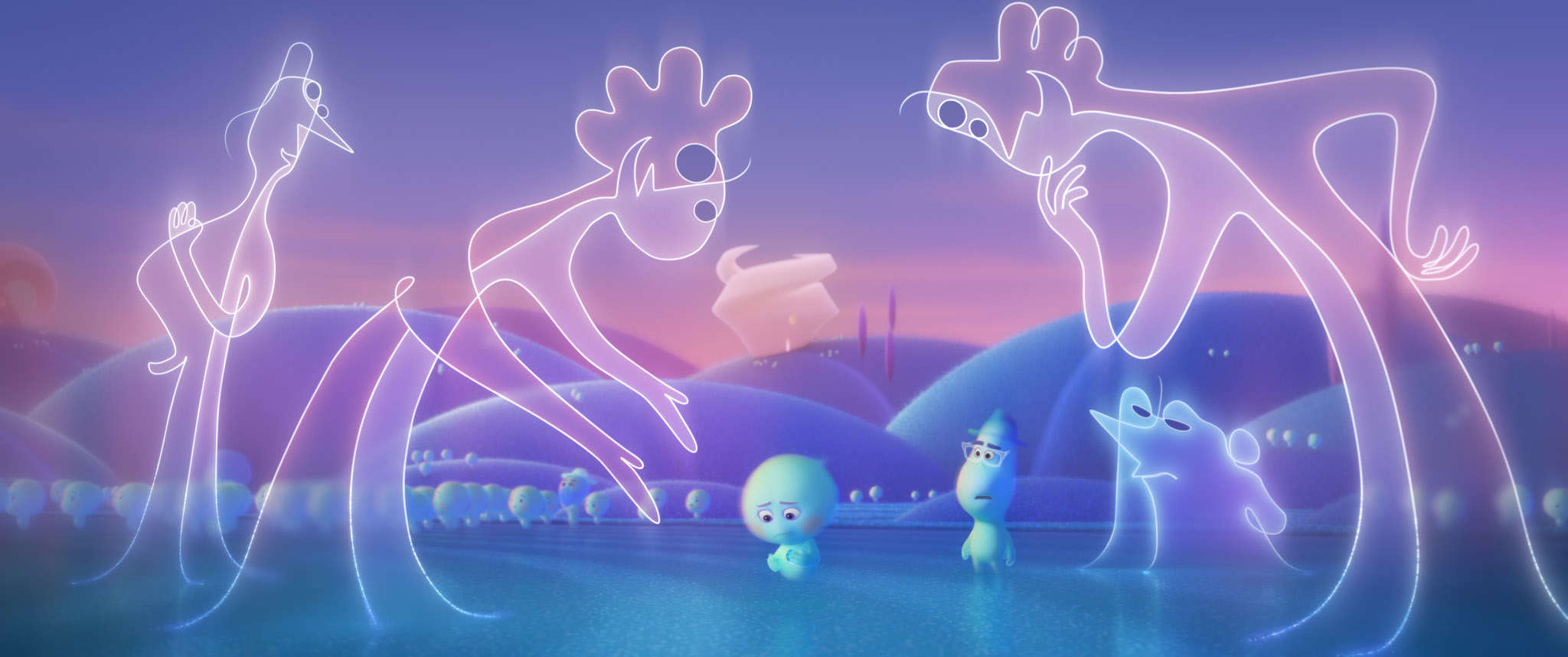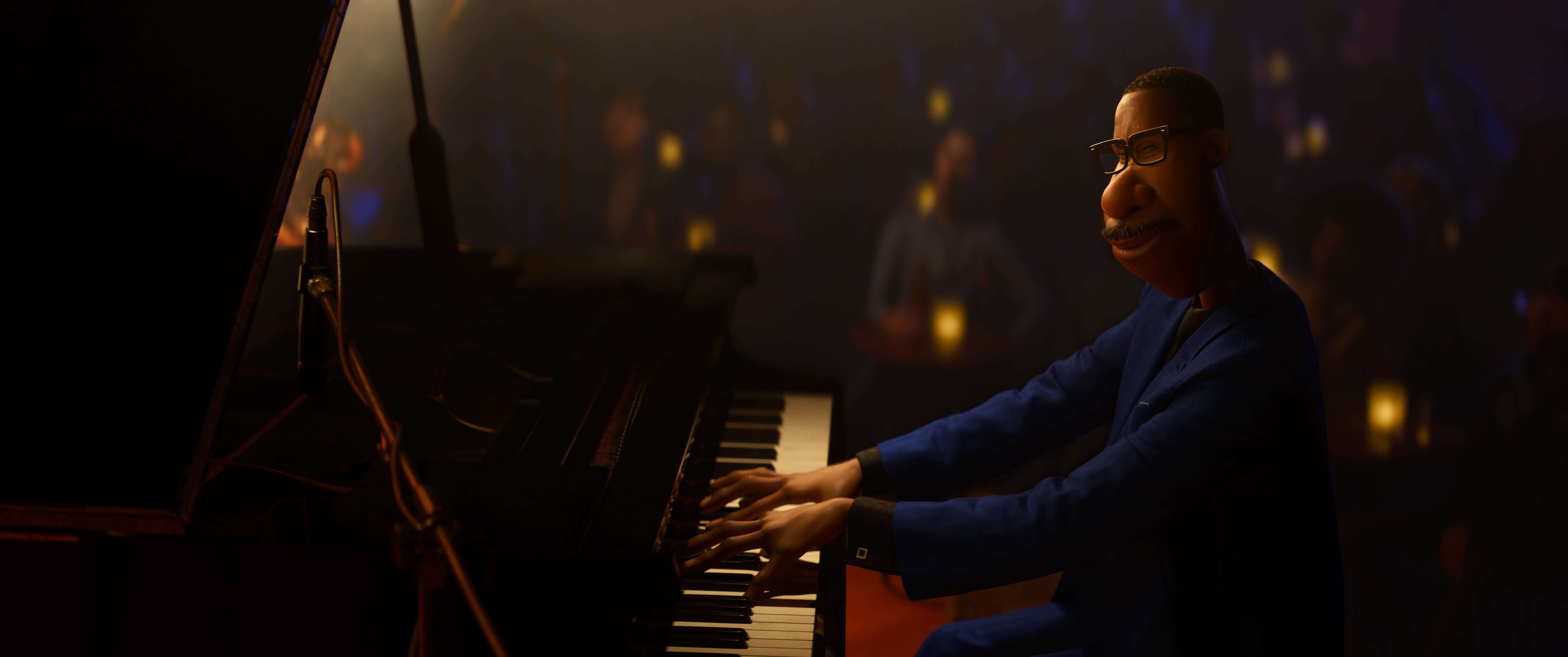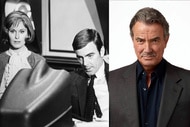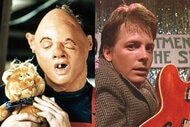Create a free profile to get unlimited access to exclusive videos, sweepstakes, and more!
Awards Contender: Pixar's 'Soul' director reveals all the paths (from heist to scavenger hunt) the movie almost took

Welcome to Awards Contenders. This awards season, SYFY WIRE is talking to the actors, directors, designers, and craftspeople whose work was featured in the best movies and TV offerings of 2020 (and that extra period of 2021 which allows them to qualify), and who are now the leading awards nominees. Today, we're speaking with director Pete Docter of the Oscar-nominated animated film Soul.
Pete Docter found his passion — and his life's purpose — at Disneyland. As a kid on a family vacation, he was "intrigued and inspired" by the animatronic puppets he saw in the Tiki Room and on the Pirates of the Caribbean ride. Returning home, he tore apart a doorbell to get the magnets he needed to make his own animatronic puppet prototypes (frogs and birds at first).
"I knew I couldn't make the Pirates of the Caribbean in my bedroom, but I could try to create the Tiki Room," he told SYFY WIRE. "It just seemed so evocative and cool." Creating characters that can move, via puppets or flip animation in school notebooks, "that's been my drug ever since," he says. "It's pretty cool that's what I get to do today."
Docter, now the Chief Creative Officer at Pixar Animation, has had a hand in many of the studio's most famous films, including Toy Story, Monsters Inc. (his directing debut), Up, and Inside Out. But after winning an Oscar for Best Animated Feature for the latter film, he began reflecting on his life and wondering how much his professional accomplishments really mattered in the grand scheme of things.
About one month later, he began thinking about a picture that would become Soul. Docter chatted with SYFY WIRE about the meaning of life and some early versions of the film.
Before the pandemic pushed it back, the original release date of the film was June 19. Was that because of Juneteenth?You know what? Originally, it was not. We had just swapped a release date with another film. And then when we realized, "Oh, this is significant," we wanted to make sure that we weren't doing anything inappropriate, trying to co-opt the holiday or anything. But from what we heard from the Black community, they felt like it was actually a really cool and appropriate thing. So it would have been nice, but in the long run, it's nicer for people to see the movie. We ended up winning out.
It's weird because at the time, getting back felt so speculative. We were like, "Well, probably in three weeks," you know? It was just so up and down and sideways. We had no idea how to track this, and why should we? In another way, we probably benefitted from the delay, because we were supposed to come out a couple of different times, and we had little waves of PR, so by the time it did come out, people were more aware of the concept of the film. Of course, we were only releasing online, so it was nice not to have to ask people to take their lives in their hands to see it.
One of the best parts about the DVD/Blu-ray release is the audio commentary and extra features, which tell us about all the different iterations the story had.
In the first version, we thought of the Soul Academy as one of those self-help seminars, where you'd have an inspirational speaker on stage saying, "We're going to find out who you are." We thought that would be pretty fun, and it probably could have been, but we wanted to place that question more dramatically in the hands of the characters. And I think that's par for the course. All of our films have gone through quite a bit of evolution before we find the purest or strongest way of communicating the kind of core emotional ideas that we're playing with.
In the case of this one, it felt like a chance to explore the difference between purpose and passion. So often we conflate those and think of them as the same thing: "I love to write. I'm a writer, and that's my purpose in life." I think we're all much more than that. There's more to life. There's more to us. So to place your value in that one pleasure that you take is limiting. This film was a way to unpack all of that and talk about "What are we waking up in the morning for? What's our purpose, if there is such a thing? What are we born with, versus what do we do to shape ourselves?"
That's what led to the evolution of the You Seminar, and eventually getting to Earth and really scrutinizing Joe's seemingly boring everyday life, realizing how much of a treasure it actually is already.
The proposed dream bubbles as portals were interesting...
The main purpose of the dream bubbles was that the big idea we wanted to communicate was what if Joe did get exactly what he wanted? What we eventually did in the film was give it to him in real life, but when we had the dream bubbles, it was kind of a lucid dream. Joe realizes he's dreaming, and gets to rewrite the life he wants. He says, "I quit teaching. I'm just going to perform." And he has the night of his life, but it's still not fulfilling. It doesn't fix him in the way that he was expecting it would.
What we found was, because it's all a dream, it didn't have the sort of emotional weight that we were looking for in the statement of the film. We hung onto the dream bubbles for a while because they just seemed cool, but ultimately, there's so much trippy stuff in the movie that we had to pick which were the most important things to communicate and pull the rest back.
There was a heist version where they had to get an Earth pass. And there was a scavenger hunt version where they had to hunt down crystals to get back.
The heist version was early on. I don't remember if it was a full script or just an outline. The crystal hunt we boarded. Most of the time, when you look back at it, you're like, "Duh! What were we thinking?" If you're talking about Joe getting to his gig, and yet all the action is about finding crystals and things, you're distracting from the main thrust of Joe's goal, right? So it just didn't make any sense. But at the time, there wasn't that great clarity. It's so much easier to look back on stuff than try to imagine it when you're looking forward.
The other thing is, a lot of these little explorations yield great discoveries, little ideas, or gags that we end up using later in the film. I'm trying to think if either of those did. I guess it helped us expand Moonwind. A lot of who he became was worked out in that version.
What gets you in the zone?
I'm trying to remember the last time! I'm an amateur musician, so sometimes I'll get so into what I'm doing that I lose track of time and sort of float away. Sometimes when I'm drawing, it can be like five hours just went by like that. It's crazy. That still happens in shorter bursts. It has to be something you're good at to the point where you don't have to intellectualize it. It's just like an extension of your arm, and you can move through it. And when that happens and the planets align, off you go!















